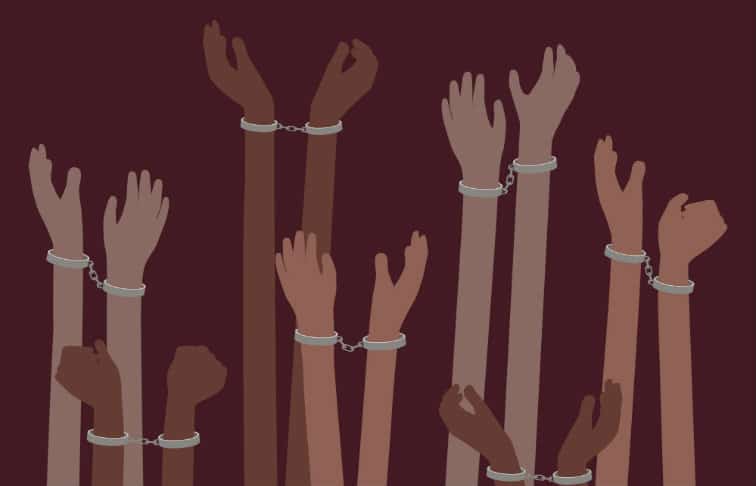10 Signs of Human Trafficking

10 Signs of Human Trafficking
Recognizing key signs of human trafficking is the first step in identifying victims and can help save a life. Traffickers recognize and take advantage of people who are VULNERABLE. They use stories as their weapons, tales of romantic love or about good jobs and fair wages to reel in the victims who are usually vulnerable and living an unstable life. These stories will seem like a dream come true to the victims.
There are many signs that will help you identify if someone is being trafficked.
Here are 10 signs of human trafficking:
1 - Being Controlled
The first sign is to see if they are being controlled by another person. The victim will be accompanied by a person that is controlling and will not allow the other to speak on his or her own behalf. Along with this sign, the victim’s movement will be controlled. They will be transported to or from work or live and work at the same place.
2 - Lack of Funds
The victim will also be unable to keep his or her earnings. The traffickers might say they are holding on to their earnings for “safekeeping”. In many cases, the person owes a debt they are working to pay off.
3 - Poor Language Skills
The victim might not speak English or only know sex-related or labor-related terms.
4 - No Identification
Along with not knowing the language, the victims most likely will not have official identification, such as a passport, IDs or legal documents.
5 - Abnormal Social Interactions
Since the victims are abused, they will be overly fearful, depressed, avoid eye contact and retreat to submissive behavior. The victims will be frightened to talk to outsiders or authorities because they are being closely monitored and controlled by their traffickers.
6 - Malnourished
The victims may appear to be deprived of food, water, sleep and/or medical care.
7 - Bruising and Scares
Besides appearing malnourished, the victims may show signs of physical abuse. They may have bruises, scars and other signs of torture. Victims of human trafficking are often beaten in areas that will not damage their appearance, such as their lower back.
8 - Branding and Tattoos
Some victims may have tattoos or branding on the neck or lower back.
9 - Drug Use
Sadly, the victims will often be forced or coerced into drug use by his or her traffickers, or turn to substance abuse to help cope with his or her enslavement.
10 - Lack of Trust
They will have an extreme lack of trust and suspicion. A victim of human trafficking will often dismiss or distrust any person who offers them assistance or attempts at conversation.
Ask yourself these questions if you are suspicious:
- Does this person appear to be coached on what to say? Is someone speaking for them?
- Does this person appear disconnected from family, friends or the community?
- Is the person fearful, timid, or submissive?
- Does the person show signs of having been denied food, water, sleep or medical care?
- Does the person have bruises in various stages of healing?
- Does the person lack personal possessions and appear not to have a stable living situation?
- Can the person feely leave where they live? Do they act like they are being monitored or controlled?
If the answer to any of these questions makes you uncomfortable and you don't know what to do next - Call the hotline!
National Human Trafficking Hotline
SMS: 233733 (Text "HELP" or "INFO")
